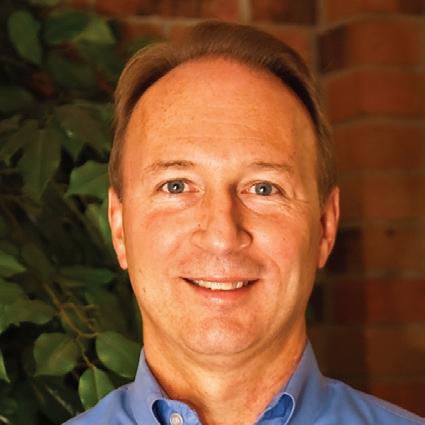Quality of Life
Today’s ‘sanctity of life’ debate involves babies—and a whole lot more. For example, how is the church caring for its elderly?
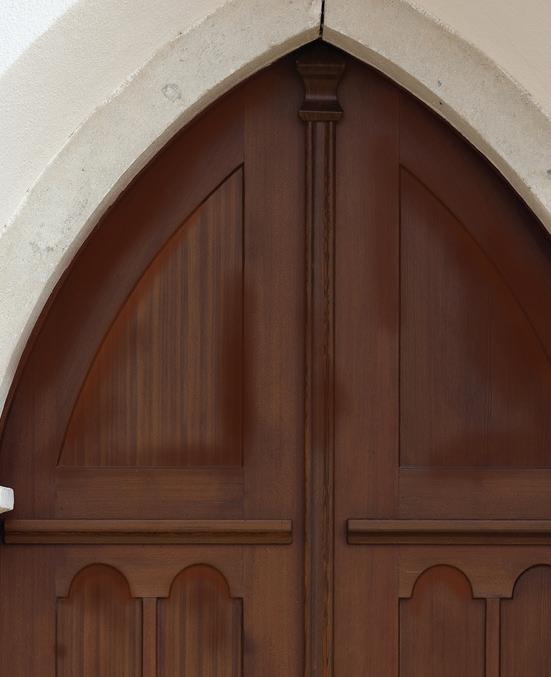
Plus:
• Abortions rise in Illinois
• Lifelines for teen mothers
• Growing approval of euthanasia






• Ideas for nursing home ministry


ERLC under scrutiny
Moore apologizes for election ill will, but is it enough?
BY MEREDITH FLYNNAs Donald Trump prepared for his inauguration as U.S. President, one Southern Baptist leader faced backlash for his comments about the President-elect during the campaign. Russell Moore, president of the Ethics and Religious Liberty Commission, was a vocal critic of Trump leading up to the election. Some fellow Baptists believe his criticism extended to anyone who voted for the Republican nominee.
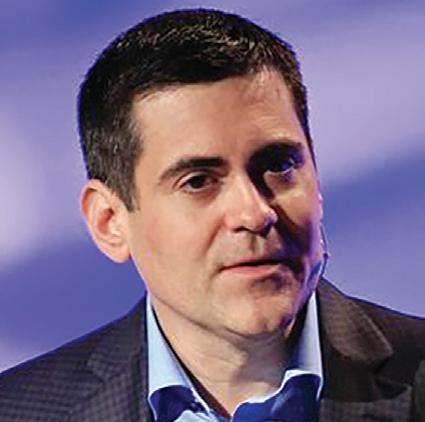
A December article about Moore in the Wall Street Journal quoted some SBC pastors who said their churches might consider modifying their Cooperative Program giving (the ERLC receives a small percentage of CP funds) because of Moore’s public stances on key recent issues. P.
God’s family history
Our story isn’t finished yet
Pat Pajak to steer Illinois evangelism


Jack Lucas joins team
P. 3
PASSING
Former executive director remembered Served 1993-1995
P. 3
NEWS
Trump appointments
Southern Baptists watching incoming leaders
P. 5
CONVENTIONAL WISDOM
“There’s a vacuum of public leadership in America. We know we have problems and that we should talk about them. But there’s no one who can bring us all together.”
– Scott McConnell, LifeWay ResearchWho can help?
When asked who could lead a healthy conversation on the nation’s problems, more Americans chose “none of these” than any of the choices offered.
“In America today, who is in the best position to generate a conversation on the challenges facing our society?”
23% Elected president
11% Pastors of local churches
10% Professors at universities
8% Members of the media
7% Business leaders
6% Elected members of Congress
1% Professional sports players
<1% Musicians
33% None of these
– LifeWay Research, Jan. 2017
2016 Goal: $6,300,000 Year-end received in 2015: $6,230,082
The Illinois Baptist staff


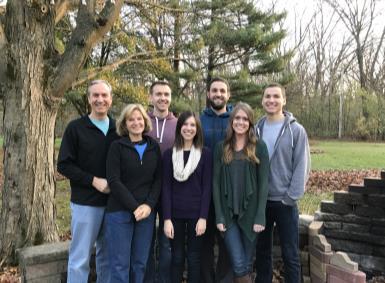
Editor - Eric Reed
Graphic Designer - Kris Kell
Contributing Editor - Lisa Sergent
Editorial Contributor - Meredith Flynn
The general telephone number for IBSA is (217) 786-2600. For questions about subscriptions, articles, or upcoming events, contact the Illinois Baptist at (217) 391-3119 or IllinoisBaptist@IBSA.org

The Illinois Baptist is seeking news from IBSA churches. E-mail us at IllinoisBaptist@IBSA.org to tell us about special events and new ministry staff.

POSTMASTER: The Illinois Baptist is owned and published every three weeks by the Illinois Baptist State Association, 3085 Stevenson Drive, Springfield, Illinois 62703-4440. Subscriptions are free to Illinois Baptists. Subscribe online at IBSA.org

Unintended family histories

My wife, Beth, is definitely the gift-giving genius in our family. She has, I believe, the spiritual gift of giving, and so she is not only generous, but also has a knack for choosing gifts that are personal, useful, meaningful, and often even frugal. But this year, it seems, I got lucky, and thought of a pretty neat gift for her. Just a couple of days before Christmas, I was scrambling to put together our annual family Christmas letter. For 24 years now, since our youngest son Ethan was born, we have produced a two-page letter with an overall family update on the front page, and individual updates on the back page.
Beth provides the raw content for the letter, and then I work at making it humorous or at least interesting. Unfortunately, multiple moves and computer changes over the years had left us without copies of many of the older letters, the ones that described little boys and grade schoolers rather than college students and young men.
So I set out to find all the old computer files, to update and repair the documents the best I could, to recreate the pieces that were missing, and to print them out fresh, or photocopy
the originals I could find. On Christmas morning, I presented Beth with a complete notebook of those letters, all carefully protected in clear plastic sleeves, and with front and back covers decorated with photos of our growing family across the years.
I kind of hoped that Beth would like the gift, and I thought our kids might eventually like copies too. So I made extra copies while I was at it, but only wrapped one to place under the tree. As soon Beth opened it, not only did she love it, but it became the conversation piece of Christmas.
Our sons and daughters-in-law quickly asked for turns reading it, and asked if they could get their own copies some time. That’s when I had the fun of retrieving books for each of them from the next room. To my surprise, all other gift opening came to a halt, as we all sat and paged through our family’s journey from little boys to big boys, from Illinois to Georgia and back to Illinois, from trips in America to trips abroad, and from one year of God’s faithfulness to another.
I’ve been reflecting since then on how surprisingly valuable and precious this lastminute gift was, and why it has continued to captivate our family’s attention. As a gift, it was much more than a flurry of searching, typing, printing, and inserting. It was an unintended family history, a series of annual mileposts that traced our journey as a family for a quarter century.
My thoughts turned from our family’s story, to the Christmas story, to the stories of the Bible, and ultimately to the fact that the Bible itself is essentially a family history of God and his people. None of its authors, though divinely inspired, could see very clearly beyond their own time in history and their own chapter of faithfulness. But once Jesus perfectly fulfilled God’s revelation, early church fathers could compile and preserve all those chapters into one wonderful notebook that we now rightly call the Holy Bible.
There’s a sense in which our churches today, now walking in the light of fully revealed Scripture, continue to add their own pages to the story of God’s faithfulness to his people, his family. As I discovered this Christmas, we may not fully realize the history we are writing until we have an opportunity to look back. But looking back should make us want to write this year’s chapter with great care.
Nate Adams is executive director of the Illinois Baptist State Association. Respond at IllinoisBaptist@IBSA.org.

Pajak to direct evangelism efforts
Springfield | Pat Pajak, who has served as an IBSA associate executive director (AED) since 2007, will transition Feb. 1 to a new role directing the Association’s evangelism efforts. Pajak, who currently directs the Church Consulting Team, previously oversaw evangelism as associate executive director of the Church Strengthening Team.

“We interviewed at least a half a dozen [evangelism director] candidates over the past year or so, never feeling we had found a great fit,” said IBSA Executive Director Nate Adams. “And each time, it seems, I found myself saying, ‘We need to find someone like Pat Pajak.’
“We believe that Pat assuming this role will elevate the visibility and priority of evangelism for our churches at a critical time, when baptisms across the state have been down for two years, and flat for even longer.”
Pajak has long been known as an evangelism promoter and practitioner. As a biker, he’s led people to the Lord at gas stations and on the side of the road while they waited for a tow truck. Last year, after he underwent open heart surgery, Pajak led eight nurses to Christ during his hospital stay and handed out Bibles in the cardiac care unit. And on Jan. 1, he preached at his former church, Tabernacle Baptist in Decatur, and led more than 160 people to commit to pray for, build a relationship with, and share the gospel with at least one person in 2017.
“I simply reminded the church that we cannot replace our burden with busyness, our witness with works, and our passion with programs,” Pajak told the Illinois Baptist. “Churches do lots of good things…but if we are not using those drawing cards and events to proclaim the gospel and reach the unsaved, we are nothing more than a club.”
In his new role, Pajak will champion evangelism strategies and training, Adams said, as well as spearhead new evangelism initiatives to be piloted in 2017.
The IBSA zone consultants previously under Pajak’s leadership will move to the Church Resources Team, led by Associate Executive Director Mark Emerson. Pajak’s responsibilities as a zone consultant for five associations in central Illinois will be assumed by Sylvan Knobloch, who will expand his current territory as a zone consultant while also developing leadership resources based on his years of experience consulting with IBSA churches.
In the future, Adams said, IBSA hopes to hire a director of leadership and church consulting to supervise the zone consultants and develop a more robust leadership development program within the Church Resources Team.
To help IBSA more effectively resource churches in the area of student ministry, Jack Lucas, current zone consultant and pastor of Pleasant Hill Baptist Church in Mt. Vernon, will transition Feb. 1 to a new full-time position as director of student and next gen ministries. The role, also part of the Church Resources Team, includes children’s ministry, summer camps, Vacation Bible school, student ministry and events, and collegiate ministry.
“Jack has worked with IBSA for years, both as one of our Vacation Bible School specialists and trainers, and more recently as a part-time zone consultant,” Adams said. “He’s a great fit on the IBSA staff, and I’m excited about having someone who can focus on helping churches specifically with reaching the next generation.”
The upcoming staff changes reflect needs expressed by churches in recent IBSA surveys, Adams said.
“In all our surveys of churches about their needs, help reaching people and growing their church shows up as the greatest need, followed closely by leadership development and help reaching younger generations. We feel that these adjustments and additions to our staff position IBSA to serve churches even more effectively in 2017 and beyond.”




Gene Wilson 1943-2016
Former Executive Director dies
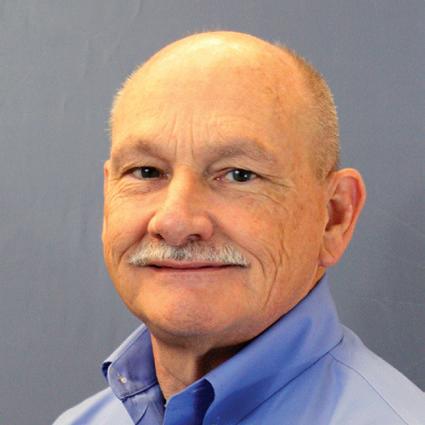
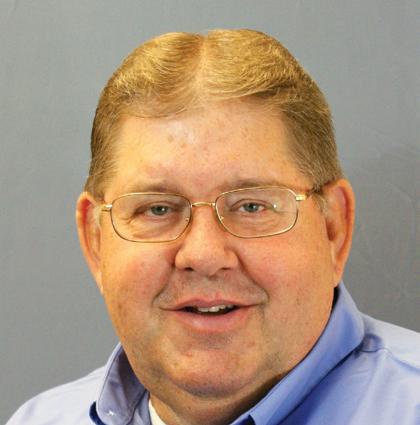
22 years after stroke
Former IBSA Executive Director Gene Wilson, 73, died Dec. 31, 2016. Wilson served from Nov. 1, 1993 until Aug. 30, 1995 when he suffered a disabling brain hemorrhage.
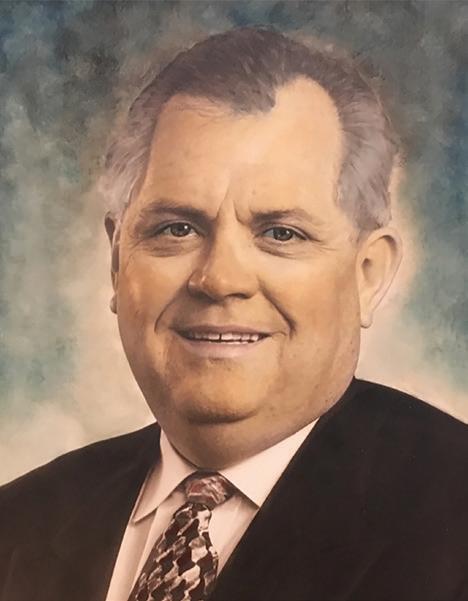
Current IBSA Executive Director Nate Adams extended condolences to the Wilson family on behalf of the association and its member churches. “I would like to offer both sympathy and gratitude for Bro. Gene’s time of service and leadership here in Illinois,” he wrote. “I only met Gene once personally, but he and Virginia are remembered fondly by the Illinois Baptist family that knew them during their brief time here. Our thoughts and prayers are with the family during these days.”
Wilson was born Oct. 20, 1943, in Arlington, Texas. Prior to serving at IBSA, he served as director of missions at Calvary-Arrowhead Baptist Association in California. He also pastored churches in Texas, primarily at First Baptist Church in Porter and First Baptist Church in Crowley.
He is survived by his wife of 51 years, Virginia Lee Wilson; children, Sandy Alford, Eddie Alford, Vicki Sabin, Ty Alford, and Beth Alford; brother, John Wilson; sisters, Lynda Moak and Paula Spencer; and numerous nieces and nephews.
The 1995 IBSA Annual was dedicated to Gene Wilson. According to the dedication, he led Baptists in Illinois to adopt a three-point vision: 1) The people of Illinois will see effective churches of growing Christians; 2) The people of Illinois will see effective churches empowered by the Holy Spirit; and 3) Illinois will see effective churches on mission.

To accomplish this vision, the dedication notes, IBSA set six priorities under his leadership: church planting, leadership, evangelism, marketplace ministries, associations, and communications.
The dedication concludes, “His time of service was short, but Wilson helped prepare Baptists in Illinois to minister effectively in the closing years of the twentieth century.”
Follow

WMU head installed
Many Illinois connections noted
From the front: MOORE responds to critics
Continued from page 1
“There was a disrespectfulness towards Southern Baptists and other evangelical leaders, past and present,” Jack Graham, pastor of Prestonwood Baptist Church in Plano, Texas, and a member of Trump’s evangelical advisory committee, told the WSJ. “It’s disheartening that this election has created this kind of divisiveness.”
During the campaign, Moore called Trump’s support from evangelicals and social conservatives “illogical” in a September opinion piece for The New York Times. “To back Mr. Trump, these voters must repudiate everything they believe,” he wrote.
Baptist Church, Washington, posted on the IBSA Facebook page. “It is a shame that so many are so willing to sacrifice the gospel on the altar of political expediency.”
Pastors call for unity
Birmingham, Ala. | Illinois’ own Sandy WisdomMartin was officially installed as Executive Director-Treasurer of National Woman’s Missionary Union Jan. 7. She succeeds Wanda Lee to become the eighth woman to hold the title in WMU’s 129-year history.
Wisdom-Martin directed women’s missions and ministries for IBSA and served as WMU Executive Director from 2001 until 2010, before assuming a similar post in Texas. Carmen Halsey, Illinois WMU Executive Director, attended the service held at Alabama’s Baptist camp, Shocco Springs.
Former WMU Executive Directors Evelyn Tully and Serena Butler were present, along with current WMU President Jill McNicol. Janet Craynon, a retired IBSA staff member and present WMU Foundation Board Member, was among other Illinoisans present.
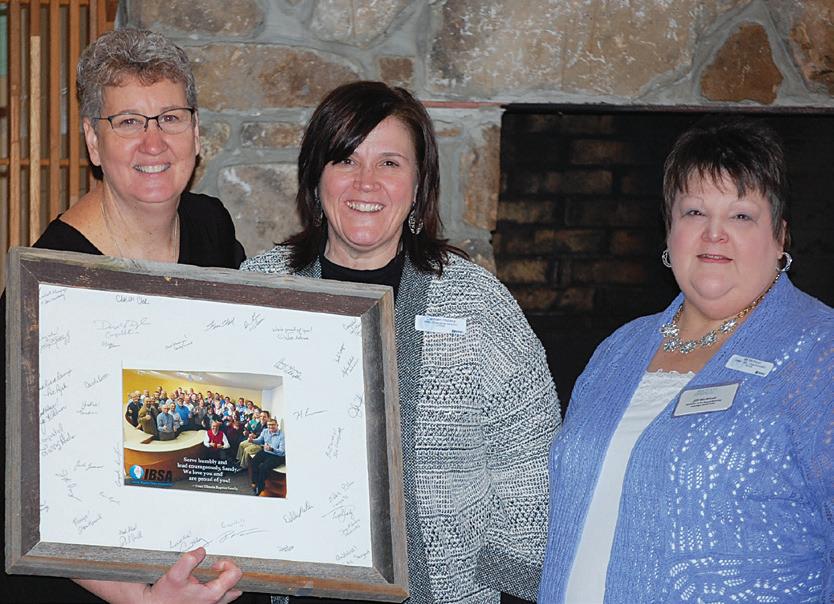
“It was wonderful to see Sandy’s connections to Illinois shared as part of the installation service,” Halsey said. Halsey and McNicol (pictured) presented Wisdom-Martin with a photograph signed by the IBSA staff. It read, “Serve humbly and lead courageously, Sandy. We love you and are proud of you!” and featured the IBSA staff giving her a “thumbs up.”
Former editor retires from LifeWay post
Nashville, Tenn. | Marty King, former IBSA associate executive director and editor of the Illinois Baptist, will retire in February from LifeWay Christian Resources, where he has served as director of corporate communica tions since 2011.

King earned communication degrees from Indiana State and Ball State Universities in his native Indiana, where he spent 20 years in broadcast journalism and health care communications before joining the former Home Mission Board, now North American Mission Board, in 1992 as director of communications. During his five years at IBSA, he was also elected president of the Association of State Baptist Papers.
Carol Pipes, manager of editorial services and editor of Facts & Trends, will succeed King. – Baptist Press
Following Trump, he continued, “would mean that we’ve decided to join the other side of the culture war, that image and celebrity and money and power and social Darwinist ‘winning’ trump the conservation of moral principles and a just society.”
Immediately after Trump’s victory in November, Moore wrote a blog post about how the church should respond to the election, beginning by praying for the President-elect.
In December, he apologized to those who felt he had criticized all who voted for Trump, noting that his comments in one particular instance were meant for “a handful of Christian political operatives excusing immorality and confusing the definition of the gospel.
“I was pointed in my criticisms, and felt like I ought to have been,” Moore wrote. “But there were also pastors and friends who told me when they read my comments they thought I was criticizing anyone who voted for Donald Trump. I told them then, and I would tell anyone now: if that’s what you heard me say, that was not at all my intention, and I apologize.”
In the blog post, Moore also clarified his reasons for speaking out like he did during the campaign, while acknowledging the agonizing decisions many people faced during the election season.
“...There were some outrageous moments in the midst of the campaign that I felt compelled by my job to address. When those moments came, occasionally I was tempted to remain silent for the sake of the ‘team’ or the issues at stake....Even still, in my case, it is precisely because Southern Baptists are pro-life, pro-family, pro-religious freedom, pro-racial reconciliation, and pro-character-in-public-office that I felt it was my responsibility to speak out on those issues. For me, to remain silent—rightly or wrongly—felt negligent.”
On social media, support for Moore came swiftly, and often from younger leaders. The hashtag #IStandWithMoore became a sign of solidarity with the embattled leader.
“Russell Moore has displayed over and over again that he is a man of principle and he will not trade that in for political appeasement,” Josh Monda, pastor of First
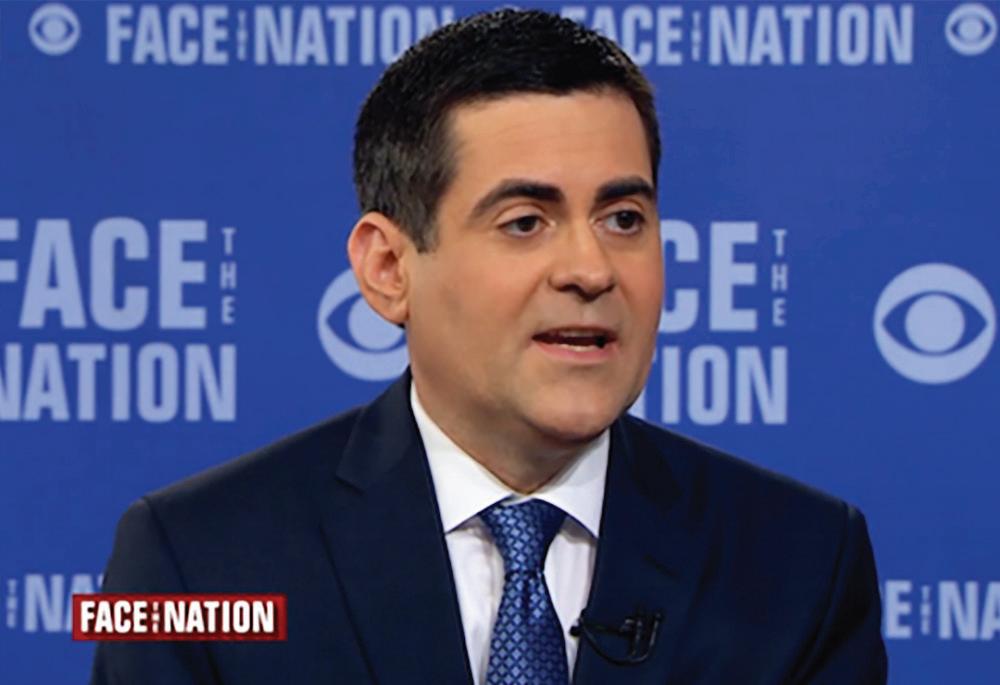
Moore’s stance on Trump’s candidacy isn’t the only position that has some Southern Baptists feeling alienated, the Wall Street Journal reported. David Hankins, executive director of the Louisiana Baptist Convention, cited other areas where Moore has “disagreement with a large majority of his constituents,” including some of his comments on same-sex marriage court decisions and his support for a Muslim group in New Jersey to be able to build a mosque.
In November, Louisiana Baptists voted at their annual meeting to ask their Executive Board to study recent actions by the ERLC. Hankins told the WSJ the board is considering whether to approve the study.
“I’m not aware of any churches that have pulled funding yet, but I’m aware some have said they’re going to,” he told the newspaper. “People are mulling their options.”
In the wake of the criticism of Moore and subsequent online debate, three Tennessee pastors called Southern Baptists to renewed unity. In a Dec. 21 open letter titled “A plea for denominational statesmanship in a time of tension,” Jonathan Akin, Nathan Finn, and Micah Fries noted differences among Baptists in theology, polity, methodology, strategy, and “cultural engagement, especially the relationship between faith and elective politics.”
The differences, the pastors wrote, have been made all the more public in this information age, and possibly exaggerated by it. They called on Southern Baptists to see not each other as the enemy, but “the Prince of Darkness to whom the lost are enslaved.”
Pointing to vast spiritual lostness worldwide, Akin, Finn, and Fries, wrote, “Now isn’t the time for division….Our hope is for men in key leadership roles in Southern Baptist life—elected officers, denominational officials, and pastors alike—to step forward and lead us in building a renewed consensus within the SBC.”
Watching the transition
Southern Baptist among Trump cabinet picks Anti-abortion action urged in Illinois
Washington | One Southern Baptist is among President-elect Donald Trump’s nominees for top government posts, but his confirmation may not come easily. That process— and the questioning of other cabinet positions of interest to evangelicals—is making the days ahead of Trump’s inauguration interesting and important.
Oklahoma Attorney General Scott Pruitt, Trump’s choice to lead the U.S. Environmental Protection Agency, has drawn praise from Southern Baptists despite charges by secular media outlets, environmentalists, and some clergy that his leadership could harm the environment.
Pruitt is a deacon at First Baptist Church in Broken Arrow, Okla., and a trustee for The Southern Baptist Theological Seminary.

The New York Times published an article calling Pruitt a “climate change denialist” and noted his participation in a 28-state lawsuit challenging some of the Obama Administration’s carbon-emission regulations. Pruitt’s nomination faces strong opposition by Democrats in the U.S. Senate.
Pruitt “does not deny that there is a human impact on the climate,” Albert Mohler, president of Southern Seminary said, urging support of Pruitt. “He doesn’t deny what’s called now the reality of global warming or of climate change. He says that the debate is not settled and the degree and the extent of global warming is not yet fully known.”
A group of 48 evangelical leaders, mostly Southern Baptists, sent a letter to Trump calling Pruitt “well qualified to lead the Environmental Protection Agency” and deserving of “the full support of the United States Senate in his confirmation.”
“We do not deny the existence of climate change nor the urgency of this concern,” the letter states. “We affirm an ongoing debate on the proper balance between the unleashing of human enterprise and the protection of creation…We believe that Attorney General Pruitt has been misrepresented as denying ‘settled science,’ when he has actually called for a continuing debate.”
in Beltsville, Md., said at a Capitol Hill news conference. “Let me say clearly, Sen. Sessions is not a racist.”
USA Today reported the pastor said Sessions “worked to bankrupt the KKK in Alabama with a $7 million judgment” and helped to desegregate the state’s public school system.
Sessions was asked during his Senate confirmation hearings if he would respect the Supreme Court rulings that made abortion and same-sex marriage legal. Sessions said he believed the abortion ruling violated the constitution, however, “it is the law of the land, it has been settled for some time….I will respect it and follow it.”
On same-sex marriage he replied, “The Supreme Court has ruled on that, the dissents dissented vigorously, but it was 5-4 and…I will follow that decision.”
Religious reps at inauguration
Six clergy members have been asked to pray at Trump’s inauguration Jan. 20, showing the most diverse religious representation at such a ceremony in recent memory. On the dais will be Cardinal Timothy Dolan of New York, Billy Graham’s son Franklin, Rabbi Marvin Hier, Bishop Wayne T. Jackson, Rev. Samuel Rodriguez, and Pastor Paula White.

Graham wrote on his Facebook page, “It is a privilege to be asked to take part in the inauguration of the next President of the United States. I am very thankful that prayer and reading from God’s Holy Word will be a part of this important ceremony as the world watches. We need God’s blessing and favor on this nation and our new president.” The younger Graham prayed at the 2001 inauguration of George W. Bush.
White is the second woman ever invited to pray at a presidential inauguration. Myrlie Evers-Williams, the widow of civil rights leader Medgar Evers, prayed at President Obama’s 2013 inauguration.
Pro-life organizations in Illinois urged the state’s legislators in January to vote no on a bill that would allow public money to pay for elective abortions for Medicaid patients. House Bill 4013 also would allow state workers’ health insurance plans to cover elective abortions.
“This legislation is a slap in the face to Illinois taxpayers by forcing them to support abortion no matter their personal beliefs,” said John Kirkwood, co-director of SpeakOut Illinois, a coalition of pro-life groups.
Lawmakers have moved the bill into a status where it can be voted on at any time, according to the Illinois Family Institute.
Mag ‘highlights’ gay dads
Highlights magazine will feature a family led by a same-sex couple on the cover of its February issue. The children’s magazine faced controversy last year when a subscriber noted on the Highlights Facebook page that the magazine didn’t include same-sex parents.

On the magazine’s decision to carry the illustration of a family with two dads in its newest issue, Editor in Chief Christine Frent Cully told the Washington Post, “We did expect and received a backlash when we committed to becoming more fully reflective to all the different kinds of families out there. We expect this will make some people unhappy. Our focus remains on creating the best possible content for children.”
SBC prayer leaders in Congress
Alabama Senator Jeff Sessions, a conservative Methodist nominated by Trump to serve as U.S. Attorney General, is also facing opposition from Democrats who accuse him of being racist. But Sessions has received support from some African American clergy. “There is an attempt by some to demonize people and call them racist when there is actually no proof for it,” Bishop Harry

The Mormon Tabernacle Choir will perform, but not without controversy. A member of the choir quit very publicly, posting her decision on Facebook and citing issues of morality for her refusal to support Trump.
Following the inauguration, a Women’s March on Washington has been organized for Jan. 21. Other groups plan to host rallies and protests, including the annual pro-life rally that coincides with the anniversary of the Roe V. Wade Supreme Court decision that legalized abortion.
Two Southern Baptist Congressmen will lead the Congressional Prayer Caucus, a group of legislators committed to protecting religious liberty and the right to pray freely. Rep. Mark Walker (R.-N.C.) will join Sen. James Lankford (R.-Okla.) to lead the caucus as it advocates this year for religious liberty on issues like health care conscience protections, freedom for religious schools, and employers’ hiring rights, according to a statement from Lankford’s office.
Walker replaces Rep. Randy Forbes (R.-Va.), who lost his bid for reelection in the primary last year. Forbes, also a Southern Baptist, founded the Congressional Prayer Caucus in 2005.
Jackson of Hope Christian Church– With reporting from Baptist Press
– Illinois Family Institute, Christian Post, Baptist Press

Illinois preachers head west
Two Chicago pastors to speak at SBC Pastors’ Conference
Phoenix | A pair of Illinois pastors will preach during the 2017 SBC Pastors’ Conference this June, event organizers announced last month. Michael Allen, pastor of Uptown Baptist Church, and David Choi, pastor of Church of the Beloved, are part of the lineup for the conference focused on the book of Philippians. Allen and Choi pastor in Chicago.

Dave Miller, a pastor and blogger from Iowa, was elected president of the Pastors’ Conference after committing to recruit a diverse group of preachers from small and medium-sized SBC churches. More than 150 preachers were nominated before organizers narrowed the list to a dozen.
In addition to Allen and Choi, the list of preachers includes pastors from eight other states:
– Jose Abella, Providence Road Church, Miami
–
Jamar Andrews, World Baptist Church, Jonesboro, Ark.
Bart Barber, FBC, Farmersville, Texas
Chris Davis, Groveton Church, Alexandria, Va.
– Shane Hall, First Southern, Oklahoma City
Jimmy Meek, Immanuel, El Dorado, Ark.
John Onwuchekwa, Cornerstone, Atlanta
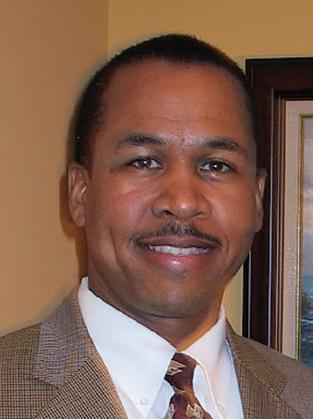
Spencer Plumlee, Riverview Church, Osage Beach, Mo.
– Ryan Rice Sr., Life Church, New Orleans
Nathan Rose, Liberty (Mo.) Baptist Church
The 2017 Pastors’ Conference is June 11-12 at the Phoenix Civic Plaza Convention Center.
ILLINOIS LEADERS
Waiting list for summit
The second-annual Illinois Leadership Summit will bring more than 250 men and women from across the state to Springfield Jan. 24-25 for training in the complexities of leading self and leading others.
Leadership practitioners, including IBSA staff members, will lead small-group intensive sessions on a variety of topics within the four stages of IBSA’s leadership development process: leading self, leading followers, leading leaders, and leading an organization. Additionally, Atlanta, Georgia church planting facilitator Mac Lake will lead large-group sessions, called collectives.
The Summit is currently full, but leaders can e-mail BarbTroeger@IBSA.org to be put on the event’s waiting list.
The Illinois Leadership Summit is held in the years between the Midwest Leadership Summit (MLS), which brings together church leaders from multiple Midwestern states. The 2018 MLS also is slated to be held in Springfield.
Pray for the city
Leaders to intercede for Chicago from pinnacle Jan. 28
Chicago | From the 99th floor of the Willis Tower, observers can see the city of Chicago, its suburbs, and even parts of three surrounding states. But more importantly, said Cheryl Dorsey, those looking with spiritual eyes from the skyscraper better known as the Sears Tower can get a small glimpse of what it’s like to see from God’s vantage point.
For several years, Dorsey, prayer coordinator for the Chicago Metro Baptist Association, has had a vision to pray over the city from a high place. But she never considered the Sears Tower, until it was time to plan for the third-annual CMBA prayer conference.
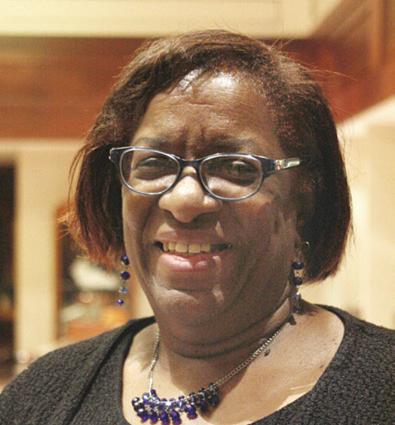

On Jan. 28, pastors and leaders from the association will meet at Uptown Baptist Church for a morning of prayer classes before heading downtown for a two-hour prayer session atop the second-tallest building in the U.S.
Rev. John Whaley of The Rooftop U.S., a ministry that helps churches engage with God’s mission through prayer, will lead the rooftop prayer encounter. Pray-ers will spend time talking to God about his heart and his desires for the region, and then come back together to share what they experienced. It’s similar to prayer walking, Dorsey said, when you don’t so much pray what’s on your own heart, but rather you’re asking God what he sees, and allowing him to pray his heart through you.
During the recap and reflection time, Dorsey said, often a theme emerges. “…We as saints of God begin to see that God knows what he’s doing. He has a plan; he’s not just talking to me about this, but this is
his heart, and he’s sharing his heart at the same time among many people, if we just allow him to.”
The prayer conference is timely, after a year in which Chicago saw more than 750 homicides. (The last year homicides in the city topped 700 was 1998, according to the Chicago Tribune). “The violence and rage and anger is all around us,” Dorsey said, but the conference and rooftop prayer encounter will be more focused on the power of God’s love to transform people’s hearts.
Crime in the city is making headlines, “but this [conference] is more about his love; this is more about the lost needing Jesus; this is more about affecting change in terms of people coming to Christ,” Dorsey said.
“The love is what is going to save people, and saved people put down their guns.”
The prayer event follows a very violent year.
“The love is what is going to save people, and saved people put down their guns.”
– Organizer Cheryl Dorsey
IN FOCUS
Journey of a lifetime
The ‘sanctity of human life’ debate starts over life at conception, but there’s growing concern for end-of-life issues as well.
On January 22, many Southern Baptist churches will mark “Sanctity of Human Life Sunday,” a day for considering the sacred nature of God-given life. The annual emphasis traditionally focuses on the prolife movement and decreasing the prevalence of abortion. But as culture changes, other life issues have become increasingly urgent matters for the church to consider, including physicianassisted suicide, outreach to refugees, and care for the elderly.
The sanctity of human life, many Christian leaders are urging, is about all human life.
At the second-annual Evangelicals for Life conference later this month in Washington, D.C., speakers will address pro-life ethics in terms of abortion, adoption, and foster care, as well as a broader spectrum of life and death topics. How should the church should respond to families with special needs children, racial tensions, human trafficking, and the need to respect human dignity through every phase of life?
Here we consider three issues in particular: the church’s role in the quality of life of older people, the culture’s growing acceptance of euthanasia, and how pregnancy resource centers are assisting unwed mothers.
At issue:
The Church: How are we caring for our elderly?

Polls: Growing approval for physician-assisted suicide, even among Christians
Lifelines: Helping the young, unwed, and in trouble
Ideas: What your church can do
Quality (of life) is job one
Who will help the elderly live abundantly and finish faithfully?
BY ELISE DISMERSpringfield | For Ruth McGlennon, one of the most challenging parts about her new life in a nursing home was getting used to the sound of her roommate crying. Although the woman wasn’t physically able to speak, McGlennon was able to guess right away the source of her sorrow.
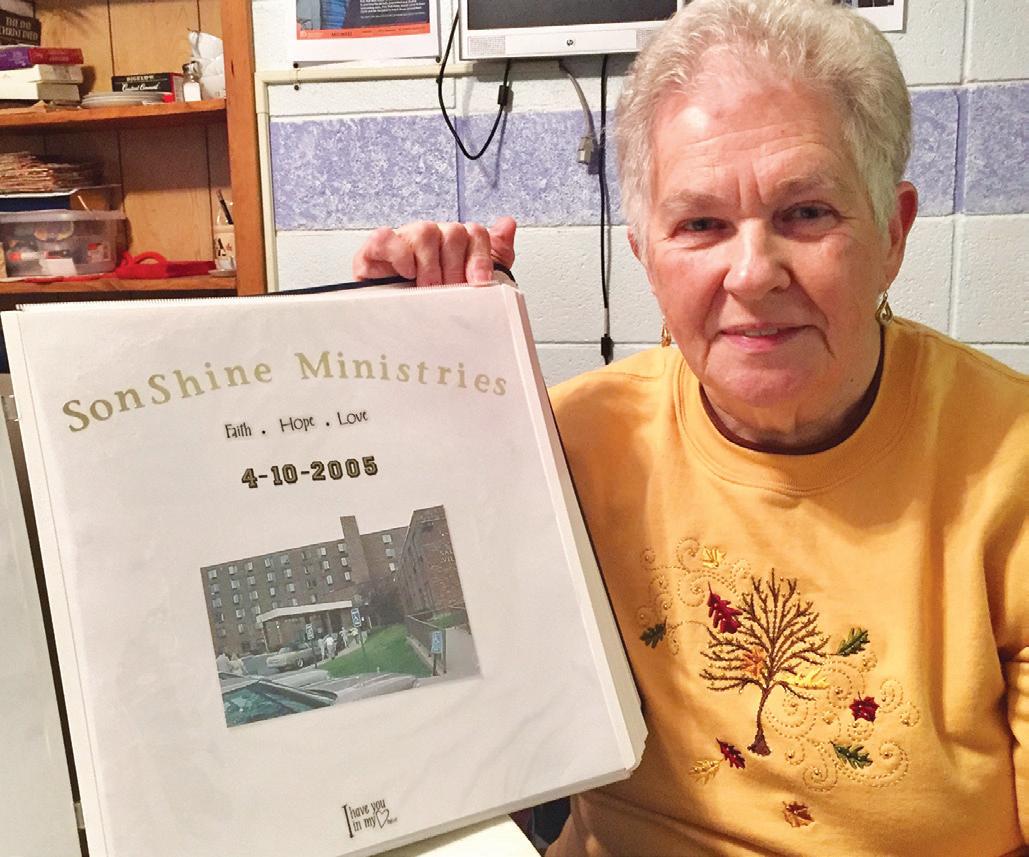
“Her family never came to see her,” said McGlennon, a former kindergarten teacher and the eldest of 10 siblings. “She had sons, and I used to be very mad at them. She could have been the worst mother in the world, but she was still their mother, and they should have been there to see her.”
The story McGlennon shared is sadly common, said Joyce Mancke, leader of SonShine Ministries, which she and her husband started 12 years ago when they lived in Joliet. The ministry, which sends teams to visit local nursing homes, now has local expressions in communities across Illinois. The Manckes are members of Eastview Baptist Church in Springfield.
“Many times, we have the elderly who never get any attention at all, or family visits. Sometimes we are all they have,” said Mancke. “Too many times, they’re just put away. Viewed as a burden.”
In Illinois, 1.8 million people are over the age of 60, according to the U.S. Census Bureau projections for 2015. That means one in seven people in this state are seniors. And about 100,000 people live in nursing homes, according to the Department of Health. Mancke said the hardest thing for many of them is the loneliness, “feeling that nobody cares.”
But the church can help, said Andrew Walker, director of policy studies for the Ethics and Religious Liberty Commission.
It’s vital for the church to be “at the vanguard of witnessing to the sacredness of life at all stages—
4 million people retire every year. In the next 20 years, about 80 million people will leave
from womb to tomb,” Walker said.
“We need to see seniors as important contributors within the life of the church. The Scriptures speak clearly of the wisdom that comes with age, and younger generations should actively seek out wisdom.”
Place of honor
Scott Foshie, pastor at Steeleville Baptist Church, said many seniors—whether they are in nursing homes, assisted living or homebound situations—feel as though “life’s passing them by.”
“It’s tragic, but sometimes people are so careeroriented—and people can be caught up in their own plans—that there’s that temptation to kind of neglect [seniors] and maybe kind of pretend that they’re not there,” he said.
Foshie said that kind of attitude undervalues the gift they bring to the body of believers.
“None of us ever retire from ministry,” said Foshie, who mentioned many seniors in his church are phenomenal prayer warriors. “They should have a place of honor in our church. We should cherish their wisdom and honor their faithfulness. I think God blesses churches when we take the time to do that and give them that special place.”
One way Christians can honor older people actually hits very close to home, Walker said. “One of the most important things the church can do to witness to its pro-life convictions at all stages is to invite elderly parents, where it is medically possible, into the home to live with adult children.
“I am concerned that the default assumption in America and within the church is to offload care of parents to outside institutions.”
While Walker said nothing is inherently wrong with nursing homes or other similar institutions, he disagrees with the attitude society has about the elderly.
“They are not society’s burden,” said Walker, who plans to take in his parents someday. “They aren’t my burden. They are my parents and I owe them this honor.”
Joyce Mancke’s team of 8-10 people from Springfield churches, including Eastview Baptist, visits local nursing homes weekly. “I personally think you should have a [seniors’] ministry team for the church,” she said, adding that the size of the team isn’t important; it’s a person’s heart for the elderly that counts.
“If you’ve got two or three with the heart, God will multiply that,” she said. “It’s like the bread and the fishes. When you see the heartbeat and when you see the Lord directing their life, people want that. You’ve got to be willing to commit, and it’s a big commitment, but you’ve got to be willing to say, ‘Yes, Lord. I’ll go.’ And that’s contagious.”
Although it’s tempting to place all the responsibility of starting a seniors’ ministry onto the pastor, Foshie said the key is actually to mobilize members of the church.
“If I tried to do it all, it would actually limit what God wants to do,” the pastor said. “I think God is a God of relationships, and I think the relationships we enjoy between our generations in the church is a reflection of God’s unconditional love for us.
“If we do not do this, if we do not get involved in ministry on a cross-generational level, then we are really missing out on God’s plan for us.”
Elise Dismer is a freelance writer living in Springfield.
See the sidebar on page 9 for six ways churches can reach out to seniors.

Engaging our elders
6 ideas for nursing home outreach
1. Sing hymns. Joyce Mancke of SonShine Ministries enlisted the aid of her husband’s quartet when she first started visiting nursing homes. She said that music, especially hymns, seemed to touch the seniors there in a powerful way.
Pastor Scott Foshie of Steeleville Baptist Church agrees that music is “absolutely effective” in seniors’ ministry and draws in a crowd at a nursing home quite quickly, even if it’s just two people singing.
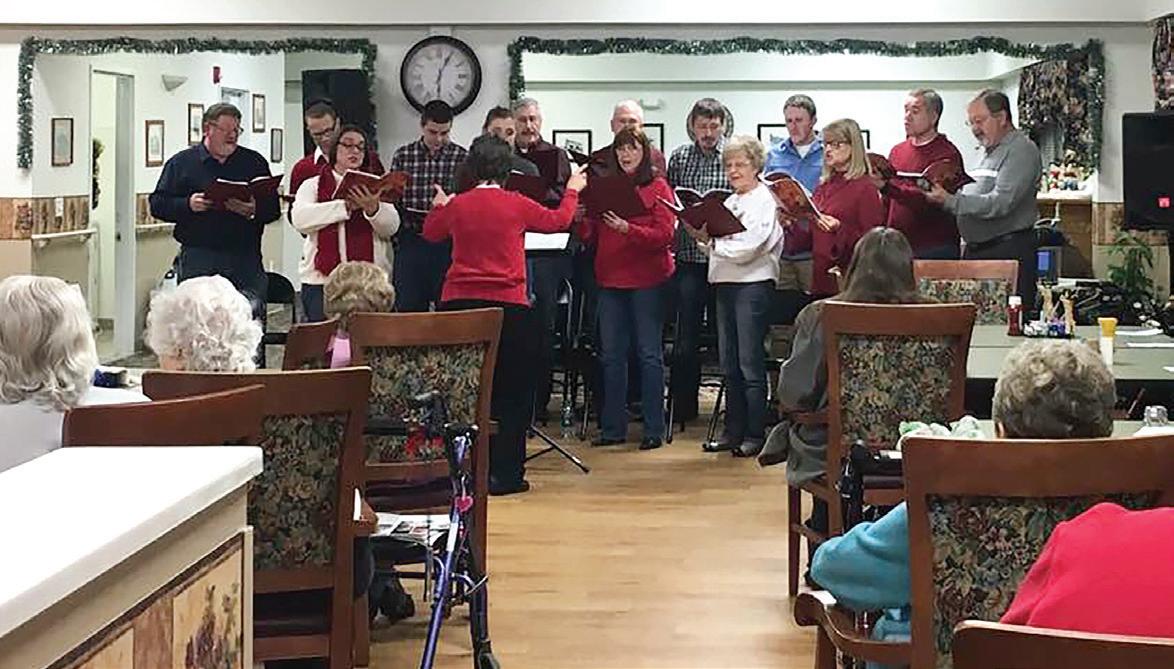
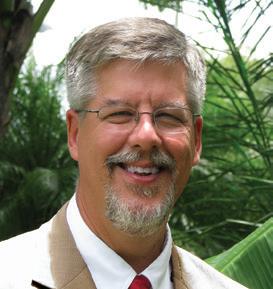
2. Make phone calls and regular visits. Connecting and spending time with seniors is important, especially in cases where a senior can no longer drive. Foshie took his youth group to the nursing home every month or so to mingle and play games with seniors there.

“They love it when teenagers come, and young people,” he said. “They love the energy and to interact with them, and I think the teenagers grew to love it. They would tell me if it had been a bit too long since we’d gone to see them.”
3. Study the Bible. Digging into the Word will not only encourage believers, it also acts as an outreach to those who may not know the Lord, Mancke said. She shared that while holding a Bible study with one man, his roommate, who overheard the studies, came to know the Lord.
4. Celebrate birthdays. Whether it’s with birthday cards, flowers, and balloons, Foshie said the gesture of celebrating a person’s life can go a long way in showing that you care. Likewise, Mancke makes a point to ask if anyone has had a birthday on her visits to nursing homes so that the whole choir and consequently the whole room—can sing “Happy Birthday” to him or her.
5. Give hugs. Mancke hugs everyone at the nursing homes she visits. She said it’s a good way to combat the feeling of loneliness that many people experience there.
“The challenge is just knowing that people care about them,” she said. “You’ve got to make them feel like they’re part of the family.”
6. Make donations. Nursing homes often have a need for clothing like socks, underwear, T-shirts, and sweaters, Mancke said, as well as practical items like lotions, shampoos, combs, hair curlers, blankets, and stationery.

Since each nursing home has its own policy on donations, it’s best to call the one near you to find out the most in-demand items or any restrictions that are in place.


In whatever way you reach out to seniors, Mancke said, the impact of the outreach is often surprising.

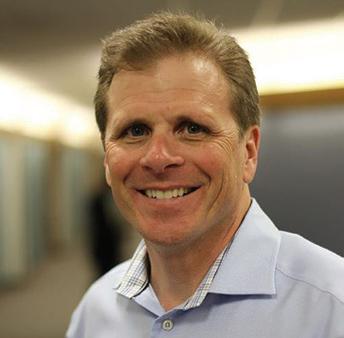
“We go to be a blessing to these people,” she said, “but the funny thing is, we’re the ones who always come back on a mountaintop.”
of Creation www.cornwallalliance.org
Majority support assisted suicide
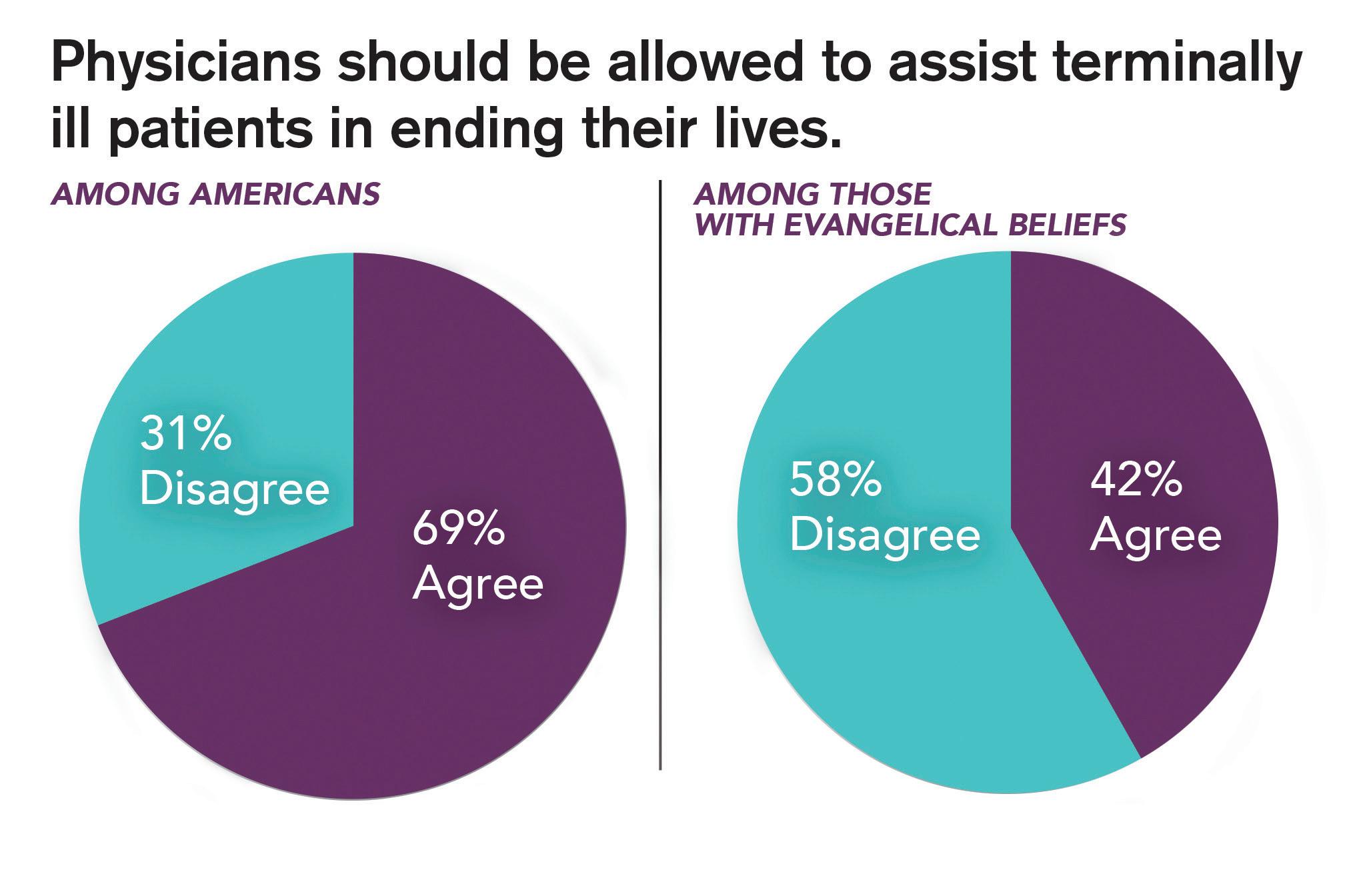
Nashville, Tenn. | The American Medical Association has described physician-assisted suicide as a serious risk to society and “fundamentally incompatible with a physician’s role as healer.” But millions of Americans— including 59% of all Christians—disagree, according to a study released last month by LifeWay Research.
Two-thirds of Americans say it is morally acceptable for terminally ill patients to ask their doctors for help in ending their lives, according to the survey, and a similar number says doctors should be able to help terminally ill patients die.
Americans want more say over how they die, noted Scott McConnell, of LifeWay Research. That’s especially true if facing a painful, terminal illness, he said.
“Many believe that asking for help in dying is a moral option,” he said. “They don’t believe that suffering until they die of natural causes is the only way out.”
Widespread support
Physician-assisted suicide first became legal in the U.S. in 1997 under Oregon’s “Death with Dignity” law. Since then, 991 patients in Oregon have ended their lives using medications prescribed by a doctor under the law, according to that state’s reports.
Today six states allow physician-assisted suicide. The latest is Colorado, where voters approved Proposition 106, which allows a terminally ill patient to request a fatal dose of sleeping medication, by a two-to-one margin in November. Washington, California, Vermont, and Montana also allow physicianassisted suicide.
The city council in the District of Columbia recently approved a measure allowing the practice—a decision that must be reviewed by Congress.
In LifeWay Research’s survey, 67% of Americans agree with the statement, “When a person is facing a painful terminal disease, it is morally acceptable to ask for a physician’s aid in taking his or her own life.” Thirty-three percent disagree.
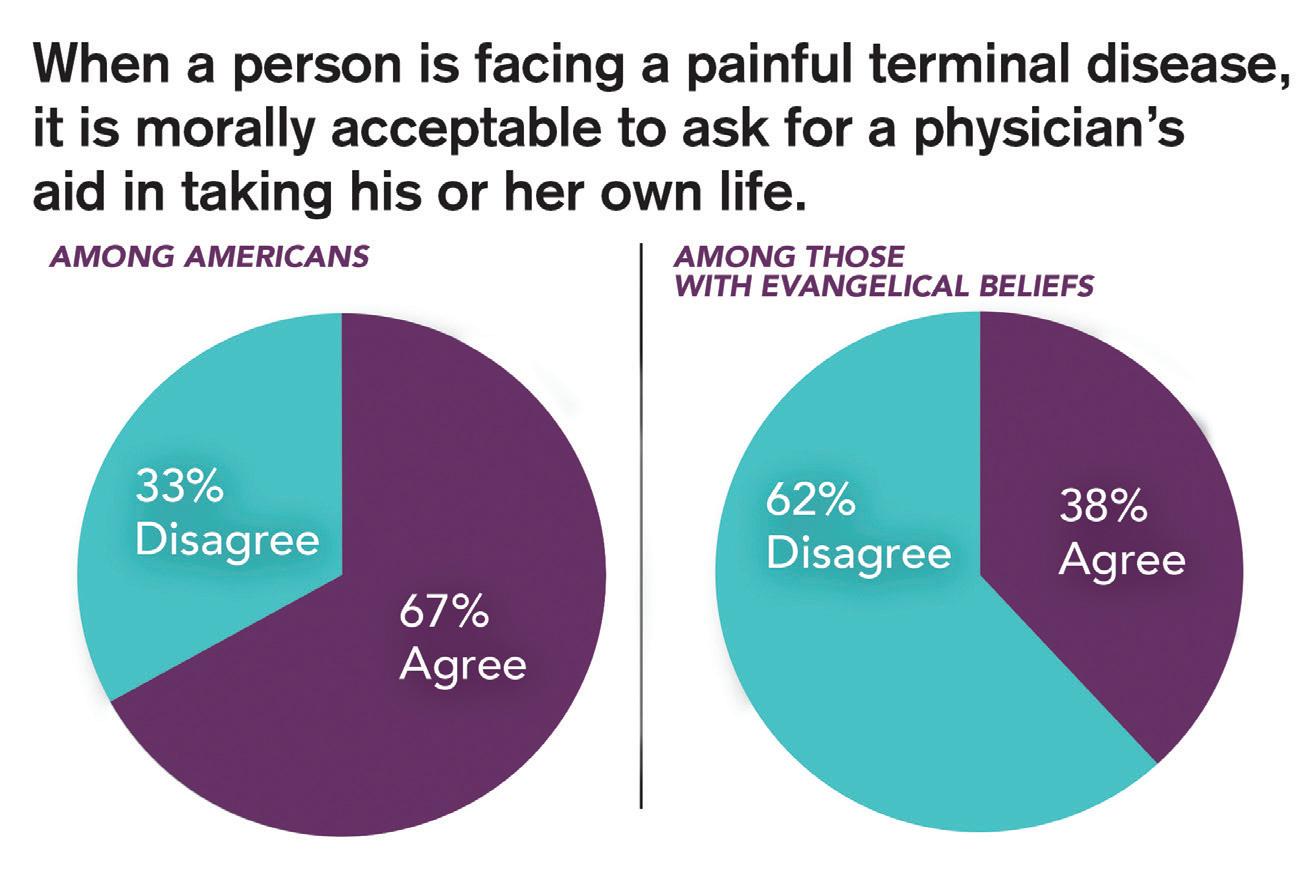
While there are differences among demographic groups, most still agree.
For example, Americans age 18 to 24 (77%) and those 35 to 44 (63%) and 55 to 64 (64%) agree. So do white Americans (71%)
and Hispanic Americans (69%). Those with some college education (71%) or with graduate degrees (73%) and those with high school diplomas or less (61%) also agree.
Among faith groups, more than half of all Christians (59%), Catholics (70%), Protestants (53%), Nones (84%) and those of other religions (70%) agree. Most of those who attend religious services less than once a month (76%) also agree.
A few demographic groups are skeptical. Fewer than half of those with evangelical beliefs (38%), African-Americans (47%), or those who attend religious services at least once a month (49%) say physician-assisted suicide is morally acceptable.
McConnell said, “Traditional Christian teaching says God holds the keys to life and death, Those who go to church or hold more traditional beliefs are less likely to see assisted suicide as morally acceptable. Still, a surprising number do.”
LifeWay Research’s findings echo those of other studies. A 2015 Gallup survey found 68% of Americans said physician-assisted suicide should be legal, up from 53% in 2013. Gallup also found that support for legalized physician-assisted suicide has wavered over the past 20 years. It previously peaked at 68% in 2001 before declining to 53%.
Fatal choice
Dutch law would allow suicide for non-terminal patients

The Hague | Lawmakers in the Netherlands are planning to introduce legislation this year that would allow physicians to help older, healthy patients commit suicide, The New York Times reported in October. Under the measure, people without a medical condition who feel they have “completed life” would be able to seek to end it. The law addresses the needs of “older people who do not have the possibility to continue life in a meaningful way, who are struggling with the loss of independence and reduced mobility, and who have a sense of loneliness, partly because of the loss of loved ones, and who are burdened by general fatigue, deterioration, and loss of personal dignity,” Health Minister Edith Schippers said in a letter to the Dutch Parliament. Even in the Netherlands, which in 2001 became the first country to legalize euthanasia, some are opposed to the idea of the new law, The Times reported.
More permissive laws in Western Europe, especially Belgium, Denmark, France, Spain, and Sweden
More restrictive laws in Eastern Europe.
The debate over physician-assisted suicide is unlikely to go away, said McConnell, and it raises troublesome questions.
“Such requests are asking doctors to betray one of their most sacred oaths—which admits, ‘It may also be within my power to take a life,’ but concludes, ‘I must not play at God,’” McConnell said. “To ask physicians to turn from their task of healing is not a decision to make lightly.”
“We cannot allow people who are needy or lonely to be talked into dying,” politician Gert Wilders told a Dutch newspaper. “Combating loneliness— and investing in dignity and focusing on our elderly—is always the best option.”
Schippers’ letter to Parliament said lawmakers hope to draft the new legislation by the end of 2017. In 2015, euthanasia accounted for 5,516 deaths in the Netherlands. The practice also is legal in Belgium, Colombia, and Luxembourg. Active euthanasia, in which a doctor administers a death-causing agent directly, is illegal in the U.S., but physician-assisted suicide, when a doctor prescribes lethal medication to a patient, is legal in six states.
– Additional reporting by Baptist Press
Surveys show a polarization on euthanasia in Europe:
After two years of decline, abortions in Illinois increased
3.5% in 2015, for a total of 39,856.
The increase follows two years of declining numbers:
2014: 38,472
2013: 40,750
2012: 43,203
Abortions among those 17 and under have decreased over the past several years, especially between 2013 and 2014, when Illinois’ parental notification law was enacted.
In 2015, at least 51% of women who had abortions were between the ages of 20 and 29.
75% were from Chicagoland.
Throwing out a lifeline
Resource centers and clinics aid those facing difficult choices
Snapshots from Tennessee and Illinois
When a woman walks into the medical clinic operated by Agape House in northwest Tennessee, she won’t find evangelism tracts or Bibles in the waiting room. While she waits nervously to have an ultrasound to confirm her pregnancy, she won’t be judged regardless of her circumstances. And if she tells the clinic staff that she’s considering having an abortion, she will be given all the information she needs about her child, but won’t be pressured into a decision.
“If someone tries to talk a woman out of a decision to abort” before her heart is ready to accept it, “then someone else can easily talk her back into it after she leaves,” said Linda DeBoard, CEO of Agape House and a member of First Baptist Church in Martin, Tenn.
“When ladies come to our clinic, our mission is to empower them with the truth about life so that they can make the best choice for themselves. We know that’s a choice for life, but she has to come to that realization after she has been given all the truth.”
Agape House is one of thousands of pro-life organizations throughout the country on the front lines of elevating the sanctity of human life. Pregnancy resource centers and medical clinics such as the one operated by Agape House offer various services to support women and men faced with pregnancy decisions.
Some centers minister to those who need assistance throughout a pregnancy in the form of training classes, counseling, or material goods such as diapers. Others, like Agape House’s clinic, focus on reaching women who are at risk for abortion, offering
59%
to choose life. “Whether she is 12 or 40, she may not be prepared for that child,” he said. “We have the responsibility to help get her prepared and to help her be the very best mother that she can be. That could be teaching her parenting skills, it might mean helping her get a job, helping her find housing. Whatever it’s gonna take for her to provide the best environment for that child.”
Care at every stage
of women expected a judgmental attitude from a local church as they considered their decision to abort.
Our culture has lied to women about abortion, telling them that it is a “quick fix” and that their lives will return to normal afterward, DeBoard said. Agape House is committed to providing truthful information about all pregnancy options—including parenting, adoption, and what abortion is and how the procedures work—and offering a safe space where women can process the information, she said.
demning attitude from a local church as they considered their decision to abort, while 29% said they received or expected to receive a loving or caring response. And 54% of women would not recommend to someone close to them that they discuss their decision regarding an unplanned pregnancy with someone at a local church, while only 25% would recommend it.
Agape staff and volunteers may ask clients whether they have a faith that might influence their pregnancy decision. This often leads to opportunities to share the gospel or to encourage women in their relationship with Jesus. They also offer a Bible study program for women who have previously had abortions.
medical services and informing them of their pregnancy options. Illinois Right to Life reports there are around 100 pregnancy resource centers in Illinois.
Angels’ Cove Maternity Center, an arm of Illinois Baptist Children’s Home and Family Services, offers expectant and new mothers a place to live, as well as life and parenting skills, individual and group therapy, and adoption services for those who choose that option.

Doug Devore, who retired this month after almost 44 years at BCHFS, said it’s a joy to see a mother hold her child after making the decision
DeBoard said that by offering their services this way, they have the opportunity to reach women who would never go to a church for help.
“A woman in our area who is wanting to have an abortion, and has already made the decision to have an abortion, is not going to church to tell you that she wants an abortion. She’s not,” DeBoard said. “She’s running from the church.”
A 2015 study from LifeWay Research supports that assertion. In a survey of women who have had abortions, 59% of respondents said they received or expected to receive a judgmental or con-
DeBoard reminds pastors that their pews may be filled with women who have abortions in their past. According to the Guttmacher Institute, a research organization with ties to Planned Parenthood, approximately 30% of women will have had an abortion by age 45. “What abortion is and does needs to be told and spoken and preached,” DeBoard said, but with sensitivity to the women who are hurting from their own abortion experiences.
“There’s no sin too great that God won’t forgive us and set us free and use our mistakes for his glory.”
Excerpted in part from an article in SBC LIFE, newsjournal of the Southern Baptist Convention. Used by permission.
For more information about services offered through Illinois Baptist Children’s Home and Family Services, go to BCHFS.com.
In Summation
His personal motivation
Through tears, the President turned to First Lady Michelle Obama, who sat smiling as the crowd cheered around her. “You have made me proud and you made the country proud,” he said. To his children he said, “Of all that I’ve done in my life, I’m most proud to be your dad.” And to the American people, the President said thank you. “My fellow Americans, it has been the honor of my life to serve you.”
– President Barrack Obama, Time.com, January 11, 2017
His secular worldview

In terms of worldview, it’s very clear that President Obama represented something genuinely new in terms of modern America, and that was a secular, more cosmopolitan worldview in the Oval Office. The secular part did not deny that President Obama was a member of a church, it did very much make clear that his basic worldview was based upon very secular premises.
– R. Albert Mohler, president, Southern Baptist Theological Seminary, AlbertMohler.com, January 11, 2017

Obama farewell draws mixed response
Following President Obama’s farewell address Jan. 11 in Chicago, Southern Baptists who have met with him personally reflected on his “liberal” social policies, apparent commitment to family, and status as America’s first black president.
A member of Obama’s Council on Faith Based and Neighborhood Partnerships from 200910, SBC Executive Committee President Frank Page told Baptist Press, “I have interacted with [Obama] personally and find him to be greatly engaging and gregarious.
“I’ve also deeply disagreed with him on a number of social and moral issues and believe that our country is deeply divided because of his intractable adherence to an extremely liberal agenda,” Page said.
Obama’s farewell speech outlined four “challenges to our democracy” and touched on social issues that have divided him at times from social conservatives. The nearly hourlong speech referenced lesbian, gay, bisexual and transgender rights on four occasions, at one point classifying “LGBT rights” among “big global fights” from which “we cannot withdraw.”
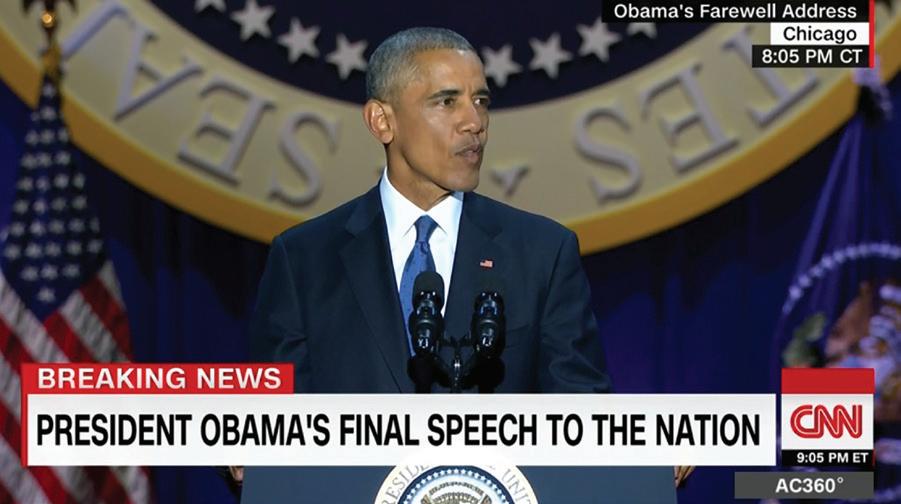
Richard Land, who retired in 2013 after 25 years as head of the Ethics and Religious Liberty Commission and its predecessor organization the Christian Life Commission, told BP he met with Obama twice.
“In a country where there is increasing family dislocation,” Land said, it has been “important that [Obama] has given every indication of being a devoted husband and father.” He added
that electing an African American president “says something really important and really good about our country.”
However, Land said he is “disappointed” Obama “has not used the occasion of being the first African American president to bring about greater racial reconciliation.”
Barrett Duke, a former ERLC vice president for public policy and research who met with Obama at least twice, told BP he is “glad” for “the opportunity to meet and work with our nation’s first African American president.”
“While we knew we disagreed on many substantive matters, President Obama was very gracious and respectful toward me,” Duke said in written comments. “He is a man of deep, personal convictions, and he stood by his convictions. However, I found him to be very thoughtful and open to counsel on matters of common interest.”
Obama leaves office Jan. 20.
– From Baptist Press
Before the parade passes by
When the Protestant Reformation gets its own float in the Tournament of Roses Parade, something big must be happening. Not that we needed the Pasadena tableau to underscore the upcoming event, but we must admit it was surprising to hear NBC’s Al Roker announce the 500th anniversary of the Reformation as three flower-covered church bells tolling “A Mighty Fortress Is Our God” cruised by at 10 mph.

Would Martin Luther—ex-communicated, jailed, and persecuted for his pursuit of biblical faith—have been shocked to see his life’s work trussed in rose petals and paraded before cheering crowds?
I was.
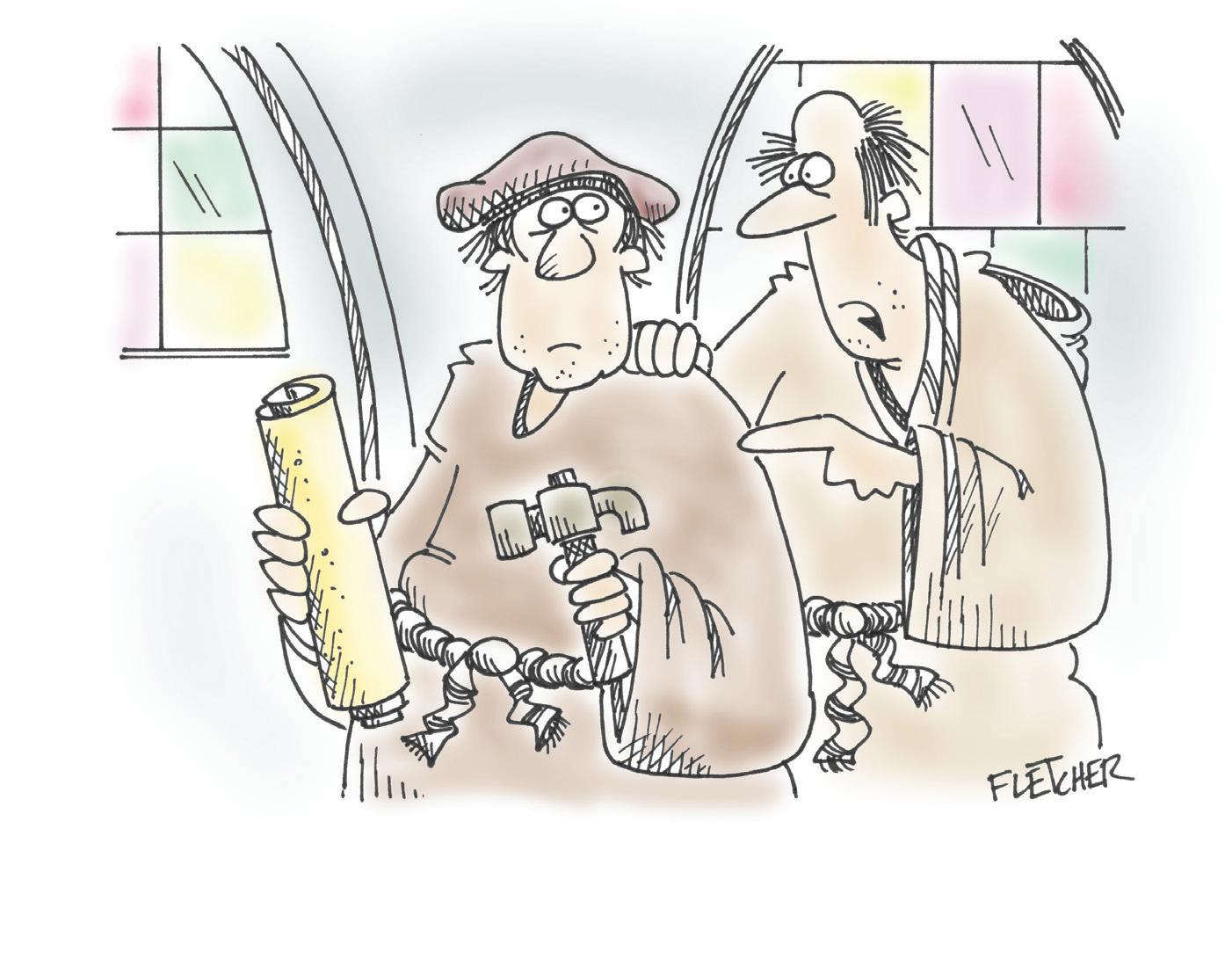
There, following the surfing dogs, the Rose Queen, and the Salvation Army Band, was the Wittenberg Door, covered in black beans and poppy seeds, commemorating that All Hallow’s Eve in 1517 when the angry priest Luther nailed his complaints against the Catholic Church on the front door. Inscribed on the giant bells was “Faith Alone,” “Grace Alone,” and “Scripture Alone,” the three-sola distillation of Reformation theology.
Also at the front of the float was a man dressed as Jesus, waving to the crowd on one side of Colorado Boulevard and then the other. We can’t fault the sponsors, Lutheran Layman’s League, for their exuberance, for Luther himself redirected the attention of the faithful worldwide to the finished work of Christ as the only means of salvation. Not obeisance to saints or Mary, time served in purgatory, the purchase of “indulgences” for others or ourselves—only God’s grace through faith in Jesus Christ
can save us. So commonplace today, this must have sounded radical to Luther’s first audiences. Yet, here we stand, benefactors of his brave actions, celebrating his Halloween escapade and all that resulted from it.
But five centuries after the fact, this anniversary is an opportune time for Southern Baptists to ask a few serious questions:
How Reformed are we? What was started by Luther was picked up, refined, and defined by John Calvin and others. The line from Calvin (and other Reformers) to Southern Baptists isn’t as obvious as is the line from John Knox to the Presbyterians or Luther to the Lutherans, but the Reformers have certainly informed our Baptist theology.
Some Southern Baptists fully embrace Calvin’s doctrines of grace, the sovereignty of God, and election, considering themselves “five-point Calvinists.” Others, who defined their position as “traditional” Southern Baptist in the 2012 debate at the New Orleans convention, accept some of Calvin’s points, but rely more on the verses about God’s desire that all would be saved. Some would say they live in the tension between Calvinism and Arminianism, between the sovereignty of God in bringing people to salvation and the free will of man to accept or reject God’s offer.
This anniversary is a good opportunity for churches to study the principles of Reformed theology and ask, How Reformed are we?
What is the appeal of Reformed theology? For people who have grown up in an era of slushy theology and postmodern uncertainty, Reformed theology offers clear, clean delineation of belief. It’s faith with handles on it. That might
explain the appeal to Christians who were described as “young, restless, and reformed” in Collin Hansen’s seminal work by that name in 2008. Hansen capsulized a phenomenon that had been in development for two decades by the time he wrote the book, and must be credited in large part, in SBC life, to Albert Mohler. From his position as president of Southern Seminary starting in 1993, Mohler has schooled a generation of young pastors, theologians, and now seminary presidents.
What is the long-term impact of rising Reformed theology on the SBC? Not everyone is enamored by the growth of Calvinism in Southern Baptist ranks. Some leaders have expressed concern about the possible impact on missions and evangelism.
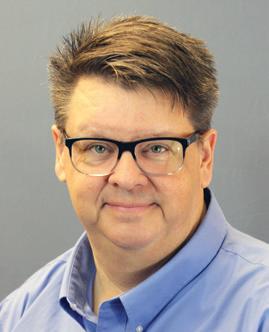
Certainly our theological debate has been invigorated in recent decades. A denomination given to pragmatic, applicable theology through the Baby Boom years has more recently turned to serious consideration of the nature of the gospel. Can committed Calvinists, “traditional” Southern Baptists focused on evangelism, and the “somewhat Reformed” all coexist in the SBC tent, with a shared purpose that unites us, despite differences over finer points of theology? Or is another schism coming?
What will happen to evangelism? Our denomination’s baptism numbers continue to decline. Southwestern Seminary President Paige Patterson, a “traditionalist,” continues to express concern that rising Calvinism will naturally cool the fires of evangelism.
International Mission Board President David Platt might demonstrate a new kind of Reformed pastor, for whom evangelistic work by God’s people has high priority in God’s sovereignty. Will Platt’s zeal prove characteristic of the younger generation who are following his charge: “For the nations!” Or will the soul-winning Calvinist prove to be an anomaly?
Now, 500 years after Luther struck the first blows for Reformation, these are a few of the issues Southern Baptists must address—before the parade passes by.
The Illinois Baptist will feature a series of essays and reports on issues related to the Reformation throughout 2017.
Eric Reed is editor of the Illinois BaptistThe anniversary of Martin Luther’s historychanging declamation should cause us to ask some important questions today.Rose Parade, Jan. 2, 2017
Pat’s Playbook
Little by little
QBefore the church called me, the pastor search committee said the church was ready for change. Now that I’ve made a few changes, some members are getting restless. I think the committee wasn’t honest with me.
AUnfortunately, oftentimes a search committee takes it upon themselves to express their views and opinions about the condition, direction, vision, and expectations of the church body, but when the new pastor is called, he discovers very few of the members are looking for the same things voiced by the committee.
Unless a candidate meets separately with (and asks good questions of) the deacons/elders, Sunday school teachers, worship teams, and congregation, he may find himself being called to a completely different situation than what was presented to him.
Obviously, it’s too late for you to do that in this case. But it’s not too late to make some improvements in the way things are done, and to cast a vision for moving the church closer to its ultimate mission. Go slowly, and make minor adjustments. Allow the people to see that you want the best for the church. Get a few wins under your belt before you try major change. Work closely with those who support you and allow them to help communicate why doing some things differently is necessary.
Did I mention going slowly? Just in case I didn’t: GO SLOW. Rome was not built in a day!
He’s got mail
QOne of our deacons answers his e-mail during church. I know he’s not reading the Bible on his phone, because the Bible doesn’t have a send button and the Bible doesn’t ding. I told the pastor, but he said I need two witnesses to bring a complaint against an elder.
AIt’s unfortunate at times, including in a worship service, but technology is a fact of life. I’m not sure we need phone police in our worship services, especially when we are living in a time of iPhone and iPad Bible apps.
You’ve mentioned it to the pastor, so trust him to say something in the next deacons meeting without having to embarrass or single out one man. Most importantly, don’t let one person’s phone use interfere with your worship experience!
Send questions for Pat to IllinoisBaptist@IBSA.org.
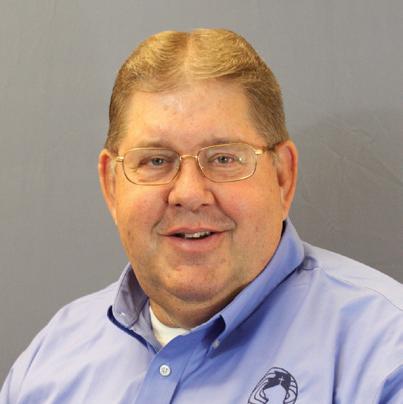
perfect timing’
people
Welcome
Pana | Sixteen years is young in church years, said Pastor Terry Walters. But for he and some of the members of Celebration Church in Pana, having a building of their own has been “a long time coming.”
The Pana church, which started in 2001 in Walters’s home, moved into their newly renovated facility in November. The building, a former Methodist church, is the first one they’ve owned; Celebration has rented meeting space, including a skating rink and a hardware store, since the very beginning.
In December, the congregation held a dedication service for the new building, which was renovated over several months using mostly volunteer labor. The years of waiting and saving paid off, Walters said—after they finish the final renovations, including the addition of a kitchen and storage room, Celebration will be debt-free on the project.
Over the years, the church explored property possibilities but never felt they had found the right opportunity. Now, Walters said, “Despite what we may have felt all those years at the time—im-
NeTworkiNg
Find more information on ministry positions at IBSA.org/connect
Send NetworkiNg items to IllinoisBaptist@IBSA.org
CELEBRATION SERVICE – The
Pana congregation met in their new building in November and are continuing to make improvements to the first facility the church has ever owned.
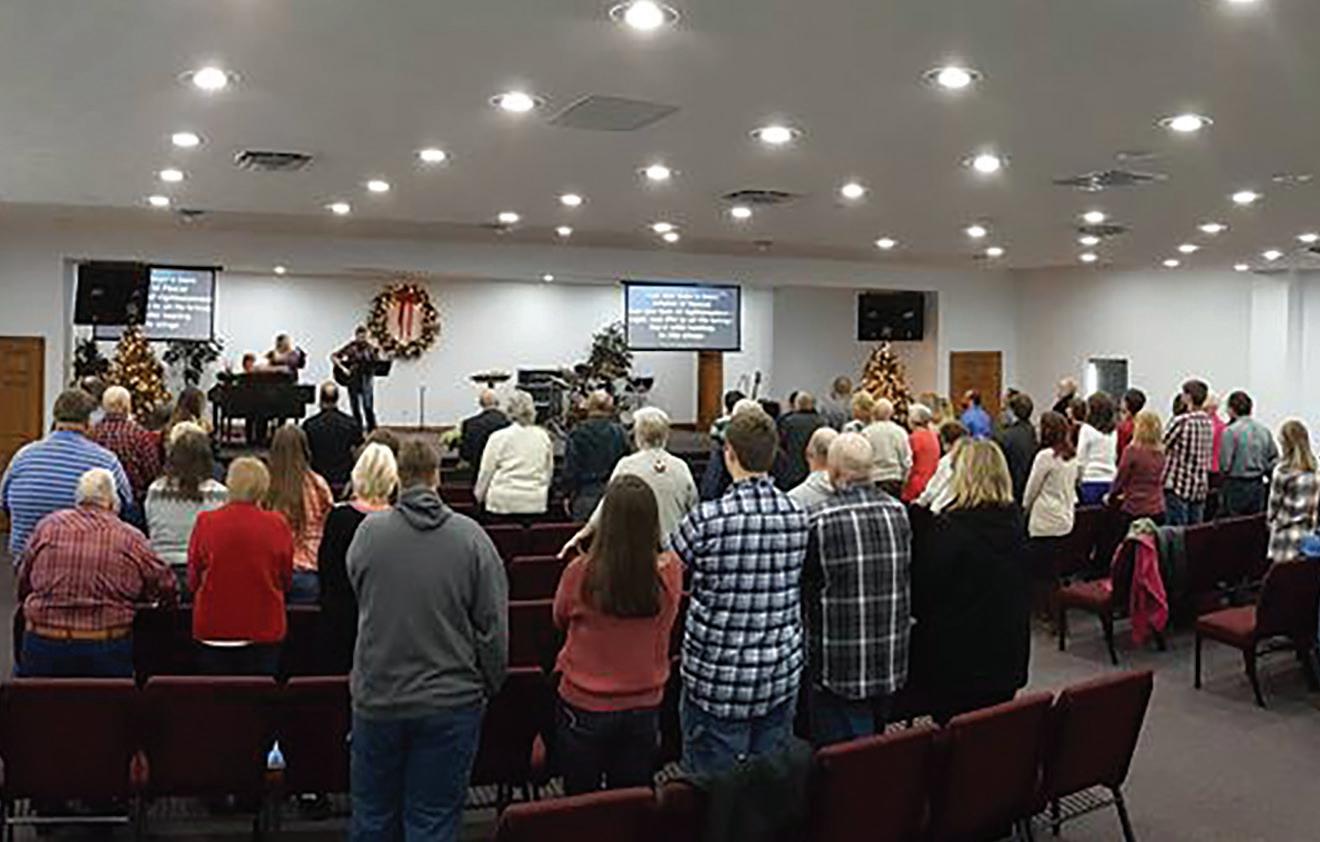
patient, or just wondering what’s wrong or whatever—it was all God’s perfect timing.”
The new site offered not just land, but a church building and a house, which Celebration has connected with the kitchen and storage addition. The result: a space they can grow into. Walters said his congregation of about 60 people can more than double in size and still fit in the new space. Attendance has been up since their relocation, he said, and 80 people attended the dedication service, despite winter weather that caused some churches in the area to cancel Sunday services.
The building is “not extravagant by any means, but it’s a tribute to God,” Walters said. “You hate to say the word ‘proud,’ but we’ve got something to be proud about. We are proud to be a part of what God is doing here at Celebration.”
Congratulations to Gilbert and Alexis Dumire, who welcomed their first child, Samuel Louis Dumire, December 15. Alexis, who has served as a ministry assistant on IBSA’s Church Resources Team since 2014, resigned her position at IBSA in December to be a stay-athome mom to Sam. The Dumires are members of Living Faith Baptist Church in Sherman.

With the Lord
Former IBSA pastor Robert Ross died September 25 at the age of 87. Born in Macoupin County, Ross graduated from Southwestern Baptist Theological Seminary and spent his life serving as a pastor. He led churches in Illinois communities including Morton, Godfrey, Quincy, and DeKalb. He and his wife, Barbara, retired to Chatham in 1994, and moved to Oklahoma in 2006. Ross is survived by Barbara, his wife of 66 years; three children; three grandchildren; and four greatgrandchildren.
Special need
Pastor Terry Pope, wife Glinda, and daughter Makayla lost their home and all their belongings to a fire Jan. 7. Terry pastors Sorento Baptist Church in Sorento, Ill., a rural community of less than 500 people located 70 miles south of Springfield. A niece has started a GoFundMe page to help the Popes purchase clothing and other basics for living. You can find their page at https://www.gofundme.com/ cw-family-member-in-need.
Charity Baptist Church, located about six miles outside Carlinville, seeks a pastor, either full-time or bivocational, who agrees with The Baptist Faith & Message (2000) Parsonage is available. Send resumés to Search Committee, 21694 Charity Church Road, Carlinville, IL 62626. Contact Bill Harding at (217) 854-6071.
Taylorville Southern Baptist Church seeks a bivocational pastor with strong leadership skills to reach the lost in and around our community, and a dynamic personality with a godly desire to guide and direct the congregation. Email tonitreuthart@yahoo.com or send resumes to 212 W. Vine, Taylorville, IL 62568. Contact the Pastor Search Committee at (217) 237-2272.
For Celebration Church, a new building was worth the wait
‘God’s
EVENTS
January 17, February 6-7
Tax Seminars
What: Valuable tax info for current and retired ministers, treasurers, and other leaders
Where: Jan. 17: FBC Effingham, 7-9 p.m.; Feb. 6: Gateway Association, 7-9 p.m.; Feb. 7: IBSA Building, 8:30-11:30 a.m. and Immanuel, Lemont, 7-9 p.m. Register: IBSA.org/church_health
January 24-25
Illinois Leadership Summit
What: Training for ministry leaders.
Where: IBSA Building, Springfield Register: IBSA.org/summit
February 3-4, 18, 25
Battle Ready Men’s Conferences
What: Simulcast teaching by Pastor Johnny Hunt
Where: Feb. 3-4: Sterling, Fairview Heights, time TBA; Rochester FBC, 5:30 p.m. Fri.-1 p.m. Sat.; Feb. 18: Woodland, Peoria, 8:30 a.m.-5 p.m.; Feb. 25: FBC Carrier Mills and Northside, Dixon, 8:30 a.m.-5 p.m. Register: IBSA.org/men
February 9
iConnect: IBSA/Pastors Meet-Up
What: Introduction to IBSA staff, ministries, training, and opportunities, for pastors and church staff members
Where: IBSA Building, Springfield Contact: CathyWaters@IBSA.org
March 11
February 10, 20-21
Rekindling the Call Retreat
What: Free retreat for pastors and wives
Where: Feb. 10: Streator Baptist Camp, 8 a.m.-5 p.m.; Feb. 20-21: IBSA Building, Springfield, noon Monday to noon Tuesday Register: IBSA.org/church_health
February 18
Church Technology Conference
What: Learn how to use technology for worship and outreach at this retreat, 9 a.m.-2 p.m.

Where: IBSA Building, Springfield
Cost: $10 per person, includes lunch Register: IBSA.org/worship
VBS Clinics
February 25: Central – Emmanuel, Carlinville
March 4: South – FBC Marion
March 18: Mid-South – Pleasant Hill, Mt. Vernon
April 1: North – Broadview Missionary
What: Training in age groups, music, crafts, missions, and more for this summer’s “Galactic Starveyors” curriculum, registration begins at 8 a.m., clinic concludes at noon. Register: IBSA.org/kids
March 5-12
Annie Armstrong
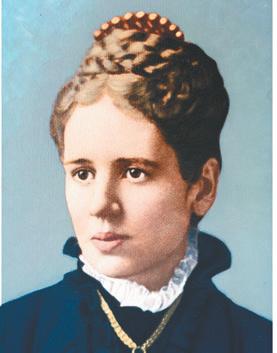
Easter Offering

Info: anniearmstrong.com
dave says
Cutting the cards
QMy husband and I are trying to follow your plan. We’ve paid off all of our credit cards, but he still doesn’t want to close the accounts and cut up the cards. Instead, he wants to keep them in a drawer and use them as an emergency fund. He grew up really poor, and I think he’s afraid of being poor again. We both know that’s not what you recommend, so what can I do to convince him to follow your advice?
AI think rather than trying to convince him, it might be a better idea to gently ask questions and talk things through. You said he grew up in poverty. What I’m hearing is that the cards represent a kind of security blanket for him. I can understand that. But if you had $10,000 set aside for emergencies, you’d have the security of knowing that a transmission repair on the car or a new water heater for the house would only be a minor inconvenience—and you wouldn’t have to go back into debt to make things right again.
Explain to him that what you’d like to do is replace the credit cards with your own money. You’d also be replacing what they do with a debit card. Ask him if there’s a reasonable amount you two could have in the bank that would take away his worry and stress. Talk it out, agree on the amount, and then agree that when you’ve saved up and hit that number, the cards get cut up and the accounts are closed. Just be patient and understanding. Above all, make sure
What: Hands-on mission projects for kids at 16 sites around the state. Cost: $15 per person Register (beginning Jan. 17): IBSA.org/kids
DAVE RAMSEYyou work together. If he’s recognized the wisdom of getting out of debt and taking control of your finances, he’s moving in the right direction!
Foolish gold
QWhat are your thoughts on transferring an IRA over to gold?
AHonestly, I think that’s about the dumbest thing a person could do. I hope I wasn’t unclear. Gold is going down like a rock right now as people start to believe in the economy and the economic direction of this country again. The stock market indicates this is true, and in the process, gold becomes worth less and less. Gold is essentially a fear-based product, and the less fear that’s out there, the cheaper gold is. That’s not how you want to fund your IRA. You want to fund it with something that has a long track record based on growth due to the performance of the companies involved—not someone’s greed or fear. Gold is a horrible investment, and I don’t own any except for one nice watch and a pair of cufflinks. That’s it!
Financial advisor Dave Ramsey is a prolific author and radio host.
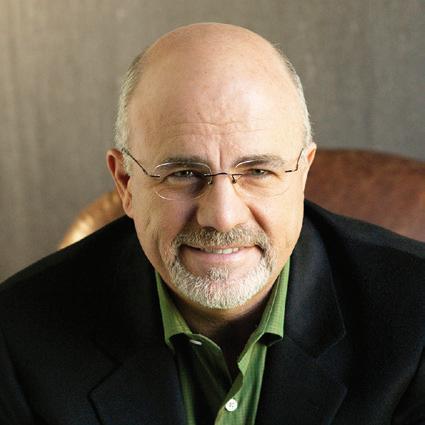
April 28-29, 2017
To register visit www.IBSA.org/worship, call (217) 391-3132, or e-mail SteveHamrick@IBSA.org
Transformative preaching
Church needed here...
Location: East Moline
Focus: Latino population
Characteristics: Nowhere in northwest Illinois is the need to reach Hispanics greater than in East Moline and its sister city of Silvis. This people group has lived in the Quad Cities for three generations and is a largely Catholic community with cultural traditions related to their roots in Mexico.
Prayer needs: Pray for a bilingual church planter who can assimilate into the culture, for a church or churches to make this ministry their own, and for the gospel to penetrate hearts in East Moline.


illinois religious landscape

God of wonder
44% 29% 25%
2%

of adults in Illinois say they have a sense of wonder at the universe at least once per week say one/twice weekly or several times per year seldom/never don’t know
– Pew Research
Jan. 24-25 | IBSA Building, Springfield
Illinois Baptists gather in Springfield for this major leadership training event. Learn to make your church more effective in ministry and outreach.

Featured teacher:
Mac Lake is a leadership expert specializing in church growth, personal development of leaders, and creation of the leadership pipeline. Learn more about Mac at maclakeonline.com.
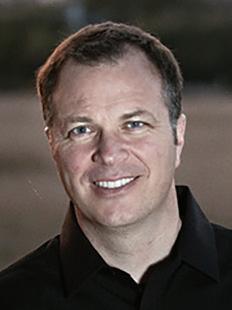
Contact BarbTroeger@IBSA.org or call (217) 391-3138
devotional
Going to the unknown
Read: Genesis 12:1-9
Born and raised in the “Cradle of Civilization,” Abram worshiped the pantheon of gods in ancient Mesopotamia. He led this sinful, idolatrous life for several decades until the one, true God called him away from this land. It was a divine imperative to go.
Nothing is worse than boring people with the greatest news known to mankind. How terrible to think that I can make the gospel sound like average news rather than good news! But as leaders, how do we connect? How do we inspire? How do we preach the gospel in a way that impacts lives in 2017 and beyond? Here are seven ideas:
1. Pray hard. Ask the Lord to fill you with his Spirit and to speak through you. Pray for God to work in the lives of those who hear.
2. Prepare well. Be sure you are accurately handling God’s Word. Prepare to preach the truth clearly and practice the delivery. Avoid distracting mannerisms or habits or phrases. Prepare in such a way that you are the sharpest instrument you can be.
3. Know people. Want to reach lost people with your preaching? Get to know some lost people. Ask them questions. Care about their lives. Learn what matters to them.
4. Use stories. Illustrations are a great help for transformational sermons. They grab attention and teach in new ways. Use illustrations from recent events, popular culture, history, and your own life. Testimonies have power as we let our hearers know God’s continuing work of transforming us.
KEVIN CARROTHERSHow fearful this command must have been! Abram was established in Ur. He was comfortable and familiar with his surroundings. His extended family was close by. From his standpoint, life was secure and satisfying. Suddenly God appeared convincingly to Abram and said, “Leave everything behind you that is familiar and go where I tell you.”
Who does this? We would never make a big change like this without planning first. Options would have to be weighed and considered. Yet God revealed enough to Abram for him to make an obedient decision. Trusting God requires the sacrifice of convenience, the safety of the comfortable, and the preference of our own desires. Like Abram, we need to respond obediently to God.
“…The God of glory appeared to our father Abraham when he was in Mesopotamia, before he settled in Haran, and said to him: ‘Get out of your country and away from your relatives, and come to the land that I will show you.’ Then he came out of the land of the Chaldeans and settled in Haran. From there, after his father died, God had him move to this land you now live in” (Acts 7:2-4).
PRAYER PROMPT: Lord, help us follow you in faithful obedience.
Kevin Carrothers serves as pastor of Rochester FBC and president of IBSA.
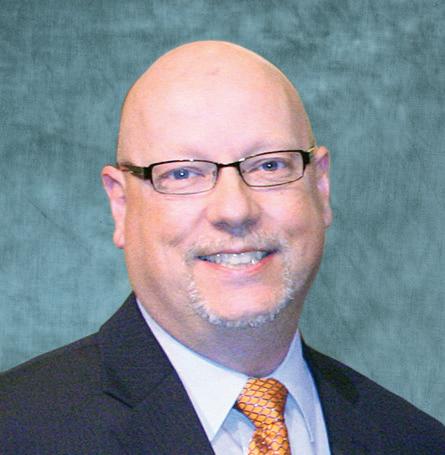
5. Remember application. Application is answering the question, “So what?” It tells us what we need to do with the truth of God’s Word. And don’t be afraid to be specific. Preacher, tell us what we need to do as a result of the truth.
6. Expect much. As Christians, we are to die to self, take up our cross daily and follow Jesus. Don’t be afraid to preach this level of expectation. It is inspiring to us to hear that we can do great things for the Lord who has done great things for us.
7. Live well. Transformational preaching can never be fully separated from the transformed preacher delivering it. Live well for Jesus in your personal life and God will bless that in your preaching life.
Doug Munton is pastor of First Baptist Church, O’Fallon. This column is adapted from the Spring issue of Resource magazine, online at Resource.IBSA.org.
